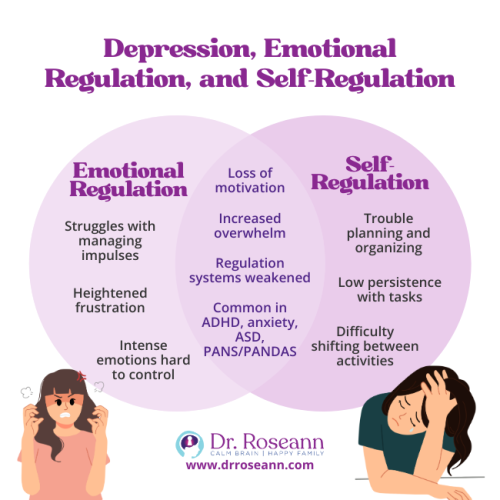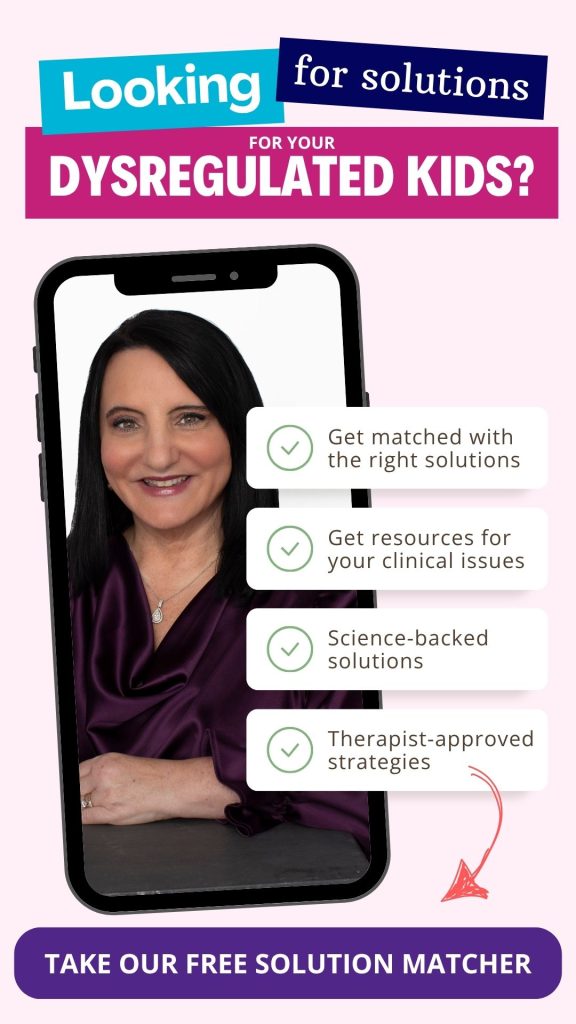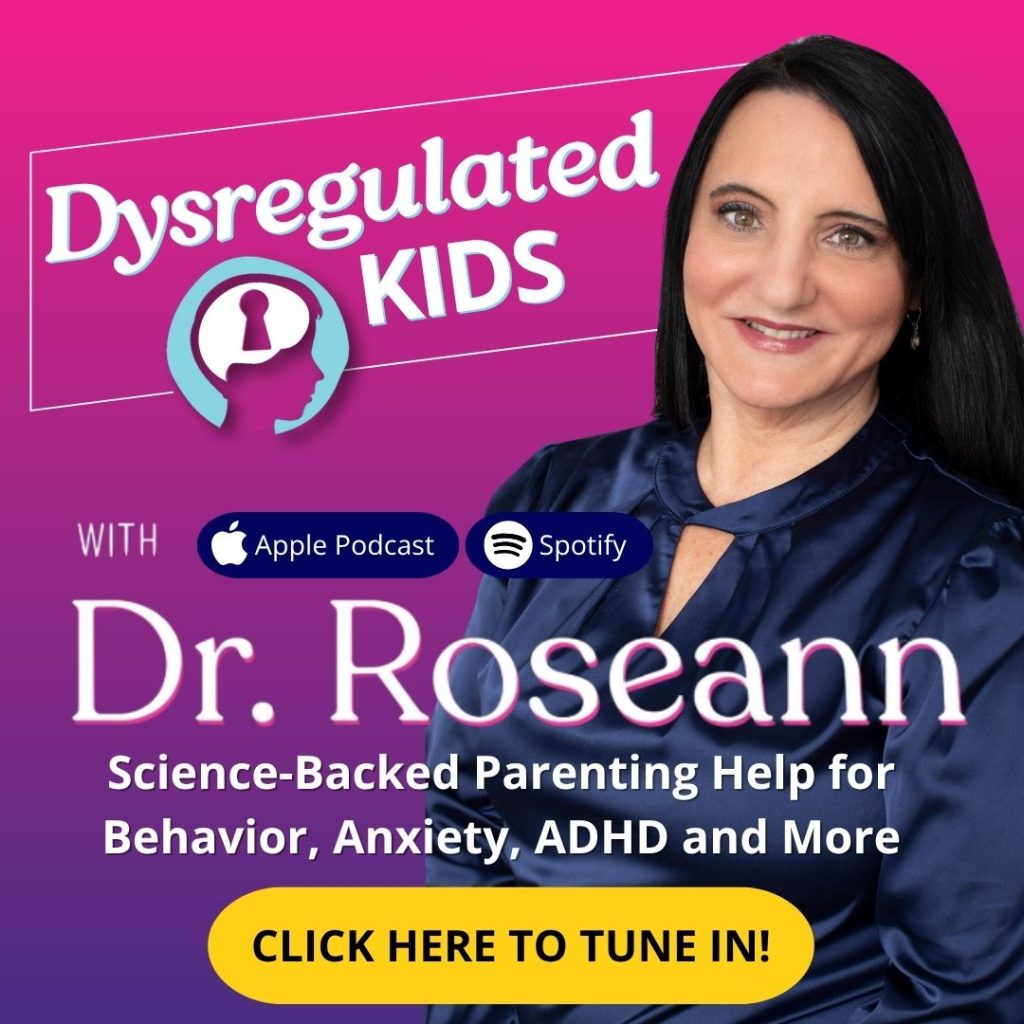Estimated reading time: 7 minutes
As a parent of a dysregulated or struggling kid, watching depression shadow their smile is heart-wrenching. But depression in children and teens is real and there are science-backed ways to help your child ride out the waves, regain hope, and build emotional resilience.
In this blog, you’ll learn:
- What coping skills for depression really mean in the family context
- How to help your child develop them
- Practical, parent-friendly strategies you can try today
What Are Coping Skills for Depression in Kids and Teens?
Coping skills are tools, habits, or strategies your child can use to manage negative thoughts, overwhelming emotions, and low mood. These are not magic cures, but daily supports that ease the burden.
✅ Examples of healthy coping skills
- Mindful breathing or grounding exercises
- Journaling or worry-logs
- Art, movement, or music expression
- Gratitude or positive focus journaling
- Gentle scheduling of enjoyable activities (behavioral activation)
TIP: Coping skills for depression should be personalized. What works for one teen (drawing) may feel pointless to another.
By practicing these little steps, the brain gradually builds pathways of resilience—even during darker times.
| Coping Skill | Description / How to Use ItMindful Deep Breathing |
|---|---|
| Mindful Deep Breathing | Teach your child to take slow, deep “belly breaths” (inhale for 3–4 seconds, exhale for 4–5). Use a small stuffed toy on the belly to help younger kids feel the rise/fall. |
| Grounding / 5-4-3-2-1 | Name 5 things you see, 4 things you touch, 3 things you hear, 2 you smell, 1 you taste. (Shifts focus out of rumination.) |
| Behavioral Activation / Scheduling | Even when low energy, schedule small enjoyable or meaningful tasks—10 minutes of art, a short walk, or “help me with cooking.” |
| Journaling / Thought Logging | Encourage writing or drawing about emotions or “what’s on my mind.” Use prompts like “What’s hardest today?” or “One small win.” |
| Cognitive Restructuring / Talk-Back to Negative Thoughts | Help your child pause, notice a negative automatic thought, and gently question it: “Is that 100% true?” or “What would I say to a friend?” (Core CBT tool.) |
| Expressive Arts / Creative Expression | Drawing, coloring, crafting, writing poetry or free-writing, music, dance — let emotion flow through creativity rather than getting stuck in words. |
| Progressive Muscle Relaxation / Body Scan | Systematically tense & release muscle groups, or imagine scanning from toes → head to gently release tension. |
| Movement / Physical Activity | Even light movement (walking, stretching, dancing, yoga) helps shift brain chemistry and interrupts depressive inertia. |
| Nature / Outdoor Time / Sunlight Exposure | Time outside, exposure to daylight, nature walks — all support circadian rhythms, boost mood, and interrupt isolation. |
| Social Connection / Safe Talking | Calling or sitting with a trusted friend, mentor, or family member. Even texting or sharing memes can be a bridge. |
| Comfort Rituals / Sensory Soothing | Use comforting sensory tools: warm drink, weighted blanket, soft music, pet interaction, holding something cold (ice cube) to reset intensity. |
| Gratitude / “What’s Working” Log | In a low mood, ask for 1–3 things that are okay or going right (however small). Helps shift attention toward possibility. |
| Mindful Distraction / Engaging Task | Use a simple absorbing task: puzzle, Lego building, cooking, coloring mandalas, or reading a short story to gently disengage from spiral. |
Why Does My Child Seem to Resist Coping Strategies?
It’s common for a depressed child to push help away. That resistance doesn’t mean you’ve failed—it often reflects emotional exhaustion, hopeless thinking, or anxiety about failing.
Possible reasons for resistance:
- They believe “nothing helps anyway.”
- They feel shame or fear others will see how broken they are.
- They lack energy or feel too numb to try.
- They worry coping feels like “yet another demand” on their fragile state.
Real-life parent scenario:
I once worked with a mother whose teen would roll his eyes when she suggested “just meditate for five minutes.” Later we learned he’d tried it and felt nothing—which felt like proof that he was “broken.” What he needed first was small, doable actions—like 30 seconds of focusing on breathing—that gave some control.
Takeaway for you: Start micro, with no expectations. Celebrate even 30 seconds of effort. Behavior is communication.
How Can I Teach My Child Healthy Coping Skills?
You can be the bridge while your child builds their own path. Here’s how:
Stepwise introduction:
- Model it yourself first
Show your child how you cope when you’re stressed (e.g., journaling or stepping out for a walk). - Offer choices, not orders
“Would you prefer drawing or walking for a few minutes?” - Make it micro—“snack-size” strategies
30- to 60-second grounding, a 5-minute playlist, or doodling. - Practice when calm
Teach when your child is in a neutral mood so the skill isn’t tied to crisis only. - Co-create a “Coping Toolkit”
Use a box, app, notecards, or folder your child can personalize. - Celebrate small wins
“Hey, you did that breathing exercise—great job!”
When Should I Worry and Seek Professional Help?
Coping skills are helpful—but they are not substitutions for professional support when needed.
You should consult a mental health provider if:
- Depressive symptoms last more than 4–6 weeks
- Your child talks about self-harm, suicide, or hopelessness
- They drop all activities, social contact, or struggle significantly in school
- Sleep, appetite, or energy is severely disrupted
- They show signs of psychosis, extreme agitation, or substance use
If any of these arise, it’s not too late—and early intervention matters.
How Do Coping Skills Tie Into Emotional Regulation and Self-Regulation?
Depression often coexists with issues in emotional regulation and self-regulation—especially in kids who have ADHD, anxiety, ASD, or PANS/PANDAS.
- Emotional regulation: the ability to manage impulses, frustration, and strong emotions
- Self-regulation: the ability to plan, persist, and shift between tasks
When depression steals motivation, regulation becomes harder. Coping skills act as scaffolding: they support the system until the brain can stabilize.

What Are Some Quick Strategies for Low-Emotional-Energy Days?
When your child is depleted, full routines may feel impossible. Here’s a “first-aid kit” of ultra-low-effort tools:
- 5-4-3-2-1 grounding: name 5 things you see, 4 you can touch, 3 you hear, 2 you smell, 1 you taste
- Hand squeeze / cooling sensation: hold an ice cube or cold object
- Gentle “body scan”: imagine releasing tension from your toes up
- Tiny tasks: “Would you journal one sentence today?”
- Comfort rituals: cozy blanket, favorite song on low volume
These aren’t cures—they’re stabilizers that sometimes open the door to something better.
How Do I Support Myself While Helping My Child?
You can’t pour from an empty cup. Here are ways to stay grounded:
- Meet your own needs: sleep, nutrient-dense food, movement
- Boundary your caregiving: set “off-duty” times
- Seek your own community: parent support groups, therapy, supervision
- Use coping skills for you: journaling, breath work, walks
- Name your feelings: validate your own struggles (“This is hard, but I care and I will get support.”)
You are co-regulating with your child more than you may realize.
Read more about: Typical Moodiness vs. Childhood Depression
FAQs
Can coping skills alone “cure” my child’s depression?
Coping skills are powerful, but not cures. They help manage distress and build resilience. Clinical support (therapy, medication) may also be necessary.
How long does it take for coping skills to help?
Some relief may appear in weeks; consistent use over months builds neural change. Be patient with progress, not perfection.
What if my child refuses any coping tool?
Start with zero pressure options—let them watch you use tools. Reinforce choice, not demand. You can plant seeds and wait for readiness.
Are there apps/tools you recommend?
Yes—mood trackers, guided breathing apps (e.g. Breathwork, Calm), art/drawing apps. But don’t let tech become a stressor. Use what feels usable.
Citations
Zeidan, F., Johnson, S. K., Diamond, B. J., David, Z., & Goolkasian, P. (2010). Mindfulness meditation improves cognition: Evidence of brief mental training. Consciousness and Cognition, 19(2), 597–605. https://doi.org/10.1016/j.concog.2010.03.014
Dimidjian, S., Barrera, M., Martell, C., Muñoz, R. F., & Lewinsohn, P. M. (2011). The origins and current status of behavioral activation treatments for depression. Annual Review of Clinical Psychology, 7(1), 1–38. https://doi.org/10.1146/annurev-clinpsy-032210-104535
Baikie, K. A., & Wilhelm, K. (2005). Emotional and physical health benefits of expressive writing. Advances in Psychiatric Treatment, 11(5), 338–346. https://doi.org/10.1192/apt.11.5.338
Dr. Roseann Capanna-Hodge is a licensed mental health expert that is frequently cited in the media:
- What if it’s Not Depression (Video) Anxiety, OCD and Trichotillomania.
- Healthline A 30-Minute Workout May Help Relieve Some Symptoms of Depression
- E’s Highway to Health Show: Talk Back To Your Anxiety Listen now…
Disclaimer: This article is not intended to give health advice and it is recommended to consult with a physician before beginning any new wellness regime. *The effectiveness of diagnosis and treatment vary by patient and condition. Dr. Roseann Capanna-Hodge, LLC does not guarantee certain results.
Are you looking for SOLUTIONS for your struggling child or teen?
Dr. Roseann and her team are all about science-backed solutions, so you are in the right place!
©Roseann Capanna-Hodge










